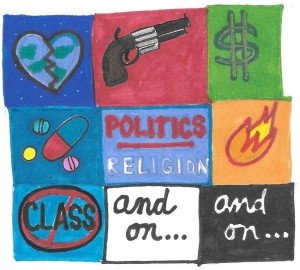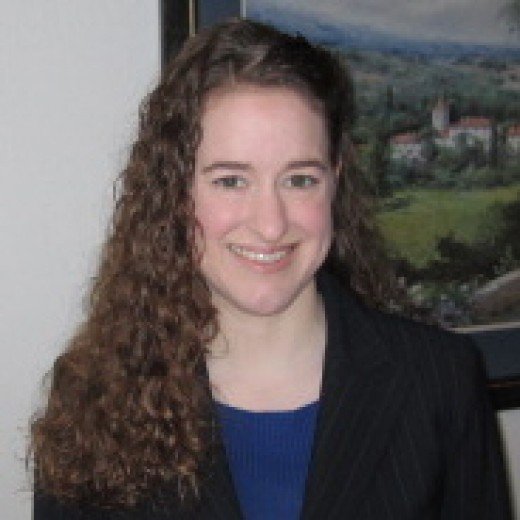Having Your Say by Nevada McPherson
 Let’s welcome back monthly columnist Nevada McPherson as she shares with us “Having Your Say.” Enjoy!
Let’s welcome back monthly columnist Nevada McPherson as she shares with us “Having Your Say.” Enjoy!
***
Do you ever shy away from certain topics in your writing for fear of what people will say or think? As a writer and/or artist you have power and the ability to influence others through what you create.
Why not use that power to challenge assumptions and to try and get closer to the truth? Is it because the truth can set you free, but can also get you fired, killed, or at the very least into arguments and trouble with your friends, family and associates? True but as a writer and artist there are many tools in your arsenal to deal with controversial topics, and you should use them to speak your truth; in so doing you just might make a real difference!
Author, playwright and all-around genius George Bernard Shaw believed in the concept of permeation to disseminate ideas that weren’t at the time popular or accepted, but he made these ideas the subjects of his plays, thus getting them out into the public through his art, telling a great story and using the persona of writer as jester to disarm his audience and make them laugh.
In Pygmalion he addressed how class and education worked in British society, shattering common notions about how one’s station in life was fixed. The transformation of Eliza Doolittle was entertaining and her interactions with Professor Henry Higgins and her “betters” were often hilarious, but in the end the seriousness of her situation was quite palpable. She couldn’t go back to who she’d been before, but what to do now? Shaw frequently addressed women’s issues, as well as controversial social issues in general, but did it in a way that made people laugh while at the theatre, then sent them home deep in thought.
Art for art’s sake is great but I frequently think of the line Betty Shafer says in Sunset Boulevard when critiquing one of Joe Gillis’s earlier screenplays, claiming that it’s not very good. “What do you want,” he snaps, “Dostoyevsky?“ She answers, “I just think a picture should say a little something, that’s all.”
For your screenplay, novel, story, or art to “say a little something,” or a big something, for that matter, for it to provoke thought, response and most importantly, action, you’ll have to take a stand on an issue. Many of us have been taught to avoid doing that publicly, lest someone be offended, but getting over that mindset can be very liberating; it strengthens your creativity, inspires your audience and empowers you to reach beyond your keyboard or canvas into the real world to challenge prejudice and raise awareness.
You may not want to debate your brother-in-law whose politics are the polar opposite of yours at the next family dinner (or you may—if so, go right ahead!). Better yet have your characters hash it out, keep it real, and let the merits of your position or argument shine through for your audience to discover.
The older I get the more I realize that having a point of view and voicing it is important. Trying to always play it safe isn’t really safe, it’s just boring. Your opinions may shift as you gather information; your characters may come around to another way of thinking, but how do you know — how does your audience know unless you or your characters take a position in the first place?
If you get a bit squeamish or fearful for what the repercussions may be, just remember it takes courage to write what you believe. Think of the writers who were blacklisted during the McCarthy era.
We live in times where fear is so prevalent that being provocative as well as entertaining, controversial as well as relevant and rhetorical as well as poetical is an integral part of the writer’s calling.
***
Editor’s Note: Thanks, Nevada, for that thought provoking and informative post! Let us know what you think about putting controversial topics into your in the comments!
***
ABOUT THE AUTHOR
Nevada McPherson received a BA in English-Creative Writing and an MFA in Screenwriting from Louisiana State University-Baton Rouge. She’s written over a dozen feature-length screenplays, one short, and two graphic novels: Uptowners, a dark comedy set in contemporary New Orleans, and Piano Lessons, a 1950’s gay teen romance. She also created the comic series, Fretville. Her latest project is Queensgate, a sequel to Uptowners set in London. For more information visit www.nevada-mcpherson.com.







